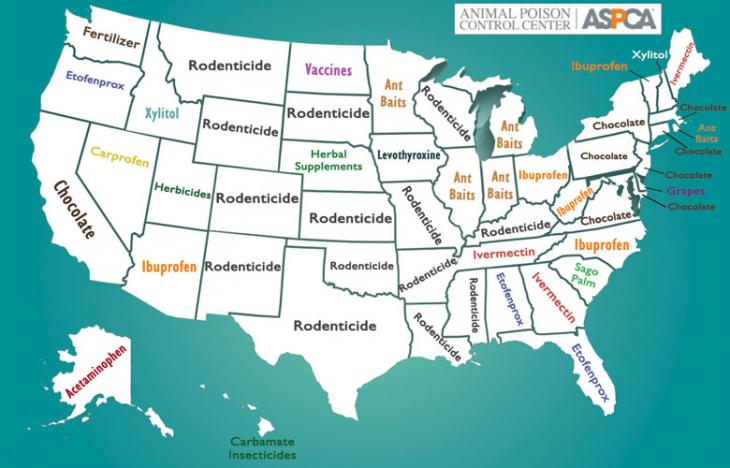
Veterinary Viewpoints
Thursday, March 24, 2016
What is the top toxin in Oklahoma?
Many foods and products that are safe for humans can be harmful – even deadly – to pets. The American Society for the Prevention of Cruelty to Animals has been fielding calls at its Animal Poison Control Center for years. Here are some of the trends reported by state.
In 14 states, including Oklahoma, rat poison is the top toxin. However, Nebraska calls focus on herbal supplements as the top toxin even though the state is surrounded by states with rodenticide issues.
Delaware is the only state in the country where the top toxin is grapes.
In Idaho, pet owners call about sugar-free gum. Xylitol, an artificial sweetener often used in chewing gum, has been linked to liver failure and death in dogs. New Hampshire also reports xylitol as the top toxin.
South Carolina’s top toxin is sago palm. All parts of the sago palm are poisonous to cats and dogs, with the seeds (nuts) being the most toxic part. Even with aggressive treatment, the survival rate is about 50 percent.
Hawaii is the only state with insecticides as the top toxin.
Chocolate is loved a little too much on both coasts. California and New York pet poison calls most frequently list chocolate as the cause.
In Washington state and Florida, the most calls list cat flea products as the culprit.
In addition to the high incidence of rodenticide poisonings, five states list ant bait as the major cause of pet poison incidents.
For additional information on various toxins to pets, visit the ASPCA Animal Poison Control Center webpage.
If your pet ingests a toxic substance, contact your veterinarian immediately or the Animal Poison Control Center at 1-888-426-4435.
by Elisabeth Giedt, DVM
Veterinary Viewpoints is provided by the faculty of the OSU Veterinary Medical Hospital. Certified by the American Animal Hospital Association, the hospital is open to the public providing routine and specialized care for all species and 24-hour emergency care, 365 days a year.
